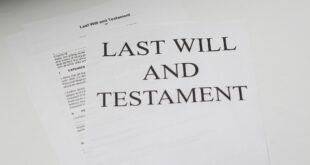Read more articles from Terry here.
Jury trials are often in the news. Sometimes the complaints of jurors who feel they are inconvenienced and underpaid feature. Occasionally a trial where the decision of the jury seems unusual, such as the trial of the activists who allegedly damaged the spy base at Waihopai, hits the headlines. Currently the news tells us that Government is changing the law about who is entitled to elect trial by jury. If the proposed law passes it will be harder to get a jury trial. Many more people charged with criminal offences will have to have their cases heard by a judge alone.
Under present law, generally – as in all legal matters there are some exceptions, a New Zealander has the right to chose a jury trial if charged with a criminal offence where the maximum penalty is more than three months imprisonment. This is regarded as a low threshold compared with many countries – in some the penalty has to be more than five years imprisonment. The proposed law change would bring in three years imprisonment as being the threshold for electing trial by jury in New Zealand. The law change is said to save time and money and will speed up our slow legal system.
Where do you draw the line about how much money is too much to spend on trying to get justice? There is no easy answer. Ask yourself this question? If you were innocent but wrongly charged with a criminal offence where you might, if convicted, go to gaol for twelve months or so, would you prefer to explain your actions and try and convince a judge sitting alone of your innocence, or a jury comprised of twelve ordinary fellow New Zealanders? I suspect most lawyers would say that if your defence was based mainly on legal argument – choose judge alone, but if your defence arose out of unusual or confusing factual issues then choose trial by jury.
I have great respect for District Court judges but do they become cynical and unbelieving over time? When I practised in the criminal courts many years ago, you always knew that some judges were more likely to give a defendant the benefit of the doubt than others. If you have sat on the Bench for many years hearing the same improbable stories day after day, do you become so cynical that you might ignore the one story in a hundred that just might be true? The sort of story that a jury hearing for the first time and thinking about their own experiences in the present day community, and after weighing up the character of the defendant giving evidence in front of them might say – ‘Yes it could have happened that way, we will give him/her the benefit of the doubt.” I guess we will never know exactly how these decisions are made in practice and our lawmakers do have to choose some criteria or standard for every legal process. Hopefully, the great democratic right of being tried by one’s peers is being given equal, or even greater consideration, than merely the benefit of saving a few dollars in the administration of justice.
The right to be tried by one’s peers, and for jurors to deliver the decisions they believe are fair and just was a hard won civil right. One of my favourite cases at Law School was Bushell’s case, a case well known to all lawyers from an Anglo-American legal background. Bushells case took place in 1670. The famous non-conformist preacher William Penn (who later emigrated with his followers to America and founded what is now known as the US State of Pennsylvania) and another man were charged with unlawful preaching on a Sunday, and conducting a seditious ceremony. In England at the time, it was unlawful for more than five people to gather together to hold a religious ceremony that was not part of the formal Church of England. In those days it was expected that juries would follow the direction of the judge and most probably they would usually have been too scared to do otherwise. However, the jury in this case returned a not guilty verdict. The enraged judge then ordered that they be locked up for two days, “without meat, drink, fire and tobacco.” After these two rather gruelling days the heroic jurors came back before the judge and again delivered a ‘not guilty’ verdict. The judge then fined the jurors and ordered that they be locked up until their fines were paid. One juror, Bushell, although threatened with contempt of court, refused to pay and applied for a writ of Habeas Corpus to a higher court. After hearing legal argument the Chief Justice of England decided that juries had the right to give their verdict according to their consciences, and judges could not insist that they gave a particular verdict. A significant civil rights precedent was established.
The jury in Bushell’s case almost certainly delivered a decision that was wrong in law. As the law then stood William Penn was clearly guilty. Probably the jury thought that Penn was a sincere, honest man and that the existing law was harsh and unjust. The twelve good men and true did what many juries have done since, and hopefully will continue to do in appropriate cases in the future, they sent a clear message to those in authority that they were out of touch with what the community really thought.
So next time you are thinking of a way to avoid that jury summons – think of the heroes in Bushell’s case and go and do your bit for democracy. Also let us all hope that some of the changes currently occurring in our legal system are based on principle and are being made after careful consideration – not just because they save money or are politically expedient.








Join the Discussion
Type out your comment here:
You must be logged in to post a comment.